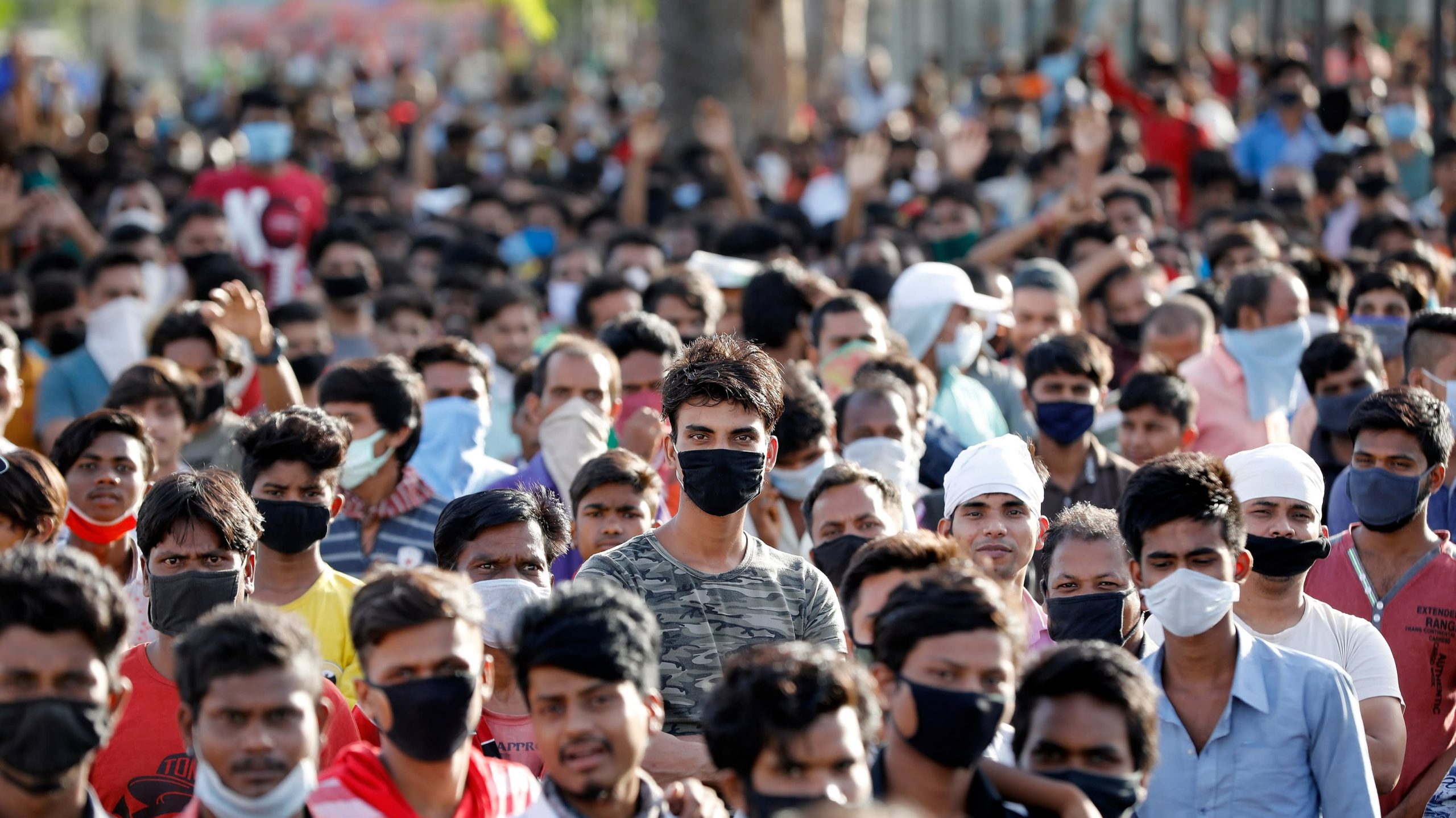IIT Graduates’ Annual Salary Soars Down, An Indication of Unstable Job Market
Literate unemployment in India has been a raging problem for almost a decade, but the the recent rough placement season of the country's most esteemed IITs has revealed a problematic pattern of job insecurity among young graduates.

No job security for IIT graduates either, high unemployment rates a nightmare for students
The highly sought out Indian Institute of Technology (IIT) shows a lack of good prospects for students as many graduates are offered annual packages of below INR 10 lakh by companies this placement season. It has also been reported that a number of companies have scaled back on their hiring and are selecting no more than 2 students.
As the pioneer of higher education in India, IIT is deemed as the most prestigious of educational hubs in the nation. Oftentimes, clearing the entrance test for IIT is celebrated as a feat of securing a good life and livelihood, since the institution boasted an average per annum package of INR 20 lakh to 1 Crore at the top IITs. While other IITs recorded salary packages of INR 20-50 lakh.
But this year, the placements for many IITs, as well as other colleges, have experienced low hirings and lower pay scales amidst a global job market going through a rough patch. Hence, students of IIT who have been offered INR 3-6 lakh per annum jobs, took up the offers but are also looking for better prospects.
Earlier this year, Indian Institutes of Management also saw this situation during their placements. In dire need of securing jobs for their students, the IIMs reached out to their alumni in various companies. Around this time, IIM Lucknow had reached out to one of their alumni and messaged them in a bid to place 72 students looking for jobs. The message by the institution went viral and disclosed the gravity of the unstable job market.
Both these instances coupled with the high unemployment rate in India are worrisome for the following reasons:
None IITians’ prospects:

Around 12-15 lakh students appear for the entrance tests of IIT. Out of these many students, 20000-25000 qualify, and only around 15000 get admissions to IITs. Which means less than 2% of students get into IIT. And the reason why the entrance tests for this institution are so hard and discerning is because it is one of the most esteemed colleges with great salary packages.
But low hiring and salary packages for IIT graduates is also a worrisome situation for other students in different colleges around the country. Because if one of the best Indian colleges can not secure jobs for their students then how are other educational institutions going to cope with the job market?
Return of Investment:
Fees of the 23 IITs across the country range to a maximum 10,00,000 INR for General and OBC candidates, and 3,00,000 INR max for SC/ST/PwD candidates. So from the point of view of General and OBC category students who occupy around 6000 seats, there is no return of investment if the annual salary package is as much, if not less than, the fees they have to pay to the institution.
Pattern of Unemployment:

One of the most problematic aspects of this low placement turnout for IIT is that it is not a one off situation but rather a pattern of job insecurity that has now been revealed. The lack of career prospects in IIMs and IITs has shown how turbulent the economy and employment rates are if prestigious government institutions with expert faculty and staff are also unable to secure jobs for their students.
The unemployment rate of India has reached a high of 8%. While many big name conglomerates, such as Google, Toshiba, Amazon, Tesla etc, have laid off thousands of employees around the world. This pattern of job insecurity in and out of India shows impending problematic situations for the global economy in the coming times.
Skilled and Literate unemployment:
As per reports from 2023 the number of unemployed graduates was 13.4%. Meanwhile, in the same year Labor Participation Rate increased from 49.30% to 49.90% This shows that most Indians are engaged in the informal labor market, while the organized sector does not have enough jobs or money to hire graduates. Which leaves a chunk of these graduates without jobs.
Demand and Supply of jobs:

The Indian government in a bid to increase the employment rates has tried to woo many global companies. It has been successful to a certain degree as a lot of multinational companies started their operations in India recently. But as the most populous country, with the majority of its population being young, the supply of jobs is not enough to sustain the demand for jobs. Which was seen in the case of IIMs this year. They had the largest batch of students, but not enough jobs for them.
Unutilized Young Population:
India’s high number of young population is seen as an asset for the growth and development of the country. And with the literacy rate in India being more than 70%, it is safe to say that most of this young population is literate.
IITs are especially known to contribute towards providing the nation with skilled and intellectual Indians such as Sundar Pichai, Narayan Murthy, etc, who have aided in developing both the global and Indian economy. But the recent low placement turnouts will leave many youngsters jobless and unable to contribute towards overall development. Skills and intellect of many of the IItians graduates will go under-utilized.
Unfair remuneration:

A student from IIT-Kharagpur reported that Spectrum Technologies offered INR 3.6 lakh and 6 lakh as salary for trainee engineers and trainee design engineers respectively. Other companies have also offered similar remunerations during placements. The issue is that the lower pay scale does not reflect less work. The new workers will have the same amount of work as the ones before them, but with lesser remuneration. Hence, this pay scale is not only unfair but is also indicative of economic exploitation.
Lack of interest:
The entrance tests of IITs are infamous for being very difficult. But the competitiveness and zeal of the students have helped in promoting an intellectual environment in India. This in turn has helped to foster a society with talent and skill. But if the high pay scale offered by IITs, that have been the incentive for many students, will be unable to deliver on this promise, then a lot of students will lose their interest in the entrance tests which could fracture the intellectual environment of the nation.
All these issues need to be addressed and solved fast, since if even the IITs are unable to provide job security then the Indian job market is in dire need of stability. And while the IIT staff have been trying their best to provide placements by reaching out to alumni, job portals and NGOs etc, a systematic intervention to sustain the demand and supply of jobs in India is necessary at this stage.





